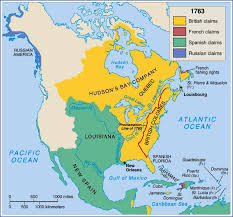The motivations for Europeans to explore, and eventually colonize North America
Goods (trade), God (conversion to Christianity), Glory (personal gain), Gold (profit)
The regions the original 13 colonies are organized by
New England (Maine, New Hampshire, Massachusetts, Rhode Island, Connecticut); Middle (New York, Vermont, Pennsylvania, New Jersey, Delaware); Southern (Maryland, Virginia, North Carolina, South Carolina, Georgia)
Name the European powers who fought in the FRENCH and INDIAN War and their allies
British and colonists vs. FRENCH AND INDIANS
Old World
Known continents to Europeans before Columbus discovered the Americas
Label the New England colonies
Maine (part of Massachusetts at this point), New Hampshire, Massachusetts, Rhode Island, Connecticut
The country Columbus sailed for
Spain
agriculture
The name of the document that ended the French and Indian War
New World
Eurocentric term that refers to the European discovery of the Americas in the 15th century
Label the Middle Colonies
New York (and Vermont, they were both part of NY), New Jersey, Pennsylvania, Delaware
Name of Columbus's ships
Nina, Pinta, Santa Maria
First permanent English settlement in North America, founded in 1607
Jamestown, VA
Reasons why Natives aligned themselves with the French during the French and Indian War
French colonized North America in smaller groups, and sought to understand Native language/culture to convert them to Catholicism
Sugar Act
British law that taxed imported goods in the American colonies to pay for the French and Indian War
Label Southern Colonies
Maryland, Virginia, North Carolina, South Carolina, Georgia
Explain the Triangular Trade
System of Transatlantic trade in the 16th century between Europe, Africa, and the Americas (raw materials shipped to Europe in exchange for manufactured goods, and slaves from Africa)
First permanent English settlement in New England, founded in 1620
Plymouth, MA
Established a boundary that prohibited British colonists from settling on Native territory west of the Appalachians
Proclamation Line of 1763
King George III
British Monarch who ruled for almost 600 years over the colonies
Explain the Historical significance of this map
French lost land, and therefore power after the Treaty of Paris (1763) was signed (ended F/I War)
The waterway in which Africans were taken to the New World
Middle passage
New York's original name
New Netherland
Reasons for colonists' anger as a result of the Treaty of Paris
Proclamation line confined their territory (and therefore power) in the "New World"; Britain taxed colonies to get out of debt
Middle Passage
Forced voyage of enslaved Africans across the Atlantic Ocean to the Americas

Explain the significance of the line on the map
Proclamation Line of 1763 confined colonists to the east coast, and forbid them from colonizing and trading with Native Americans west of the Appalachian mountains